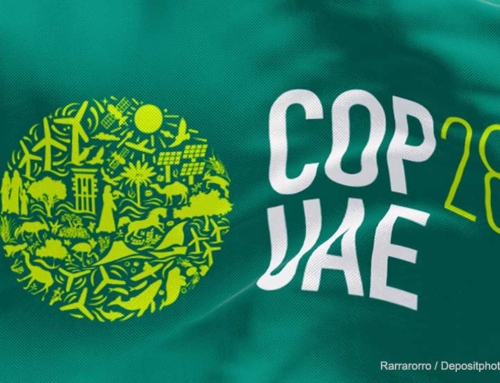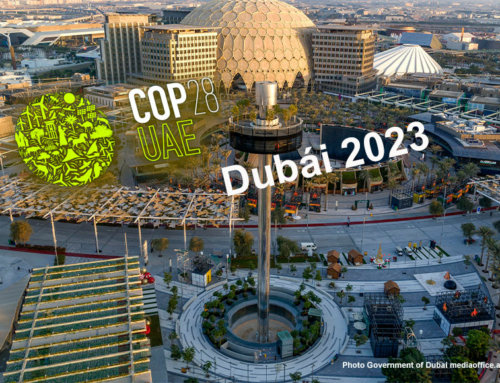Updated September 18, 2021
COP26 will take place in the Scottish city of Glasgow, between October 31 and November 12, 2021, and not in 2020 as planned. Its postponement was due to the COVID-19 pandemic. This change of date was agreed between the UN and the Governments of the United Kingdom and Italy, which are in charge of its organization. Alok Sharma is the President of the Conference. His motto is: “Uniting the world to tackle climate change.”
COP26 is considered the most important climate event since the failed Kyoto Protocol in 2009, or the presentation of the Paris Agreement in 2015. Glasgow is the culmination of a quarter century of meetings, summits and conventions, the history of which has, sadly, it has been a long chain of good intentions, ideas, promises, protocols and agreements that have fallen by the wayside. But this year failing is not an option.
Objective of COP26
The objective of COP26 is closely linked to the central objective of the Paris Agreement, to maintain the increase in global temperature at 1.5 ºC by the end of the century, starting from the temperature of 1750. To ensure the success of COP26 it is necessary that all countries commit to achieving net zero emissions by 2050, and to make significant additional cuts by 2030. In addition, the Race to Zero has been created, an initiative aimed at providing the Paris Agreement with a sustained base in the “real economy”, with a new approach to the fight against climate change.
The Race to Zero campaign and the COP26
The international campaign Race to Zero was officialized on June 5, 2020, within the framework of World Environment Day. To begin with, it mobilizes a coalition of Net Zero leaders, representing 23 regions, 454 cities, 1,397 companies, 569 universities and 74 investors, which account for more than 12% of the world economy. These “real economy” players join 120 countries in the largest alliance ever committed to achieving net zero carbon emissions by 2050. Net zero commitments globally cover at least 68% of the economy global (US $ 84.575 billion), 56% of the world’s population (more than 4.2 billion people) and 61% of global greenhouse gas emissions. ” According to the Race to Zero Campaign page of the UNFCC.
The new IPCC report of 2021 and COP26
The IPCC Sixth Assessment Report offers new estimates on the possibility of exceeding the global warming level of 1.5 °C in the coming decades. This would mean a breach of the central objective of the Paris Agreement. The report concludes that “unless greenhouse gas emissions are reduced immediately, rapidly and on a large scale, limiting warming to around 1.5 °C or even 2 °C will be an unattainable goal.”
Faced with these harsh warnings, the decisions taken at COP26 acquire special relevance. It is to be hoped that during the crucial climate summit conscience and reason will deprive, and drastic measures can be passed unanimously and the Paris Agreement will be decisively implemented.
The Green Climate Fund
It is essential to start implementing the aid of 100 million dollars a year from the Green Climate Fund, an entity included in the United Nations Framework Convention on Climate Change, created at the end of 2011, as a mechanism to help countries in development in its adaptation, mitigation and resilience needs, in the face of climate change.
Towards the energy transition
To meet the central objective of the Paris Agreement, it is essential to accelerate the transition to renewable energies, the opportunity of the rapid fall in the costs of energies such as solar, wind and green hydrogen must be seized.
Climate change at the level of climate catastrophe
CO2 emissions, hostile deforestation of forests, the progressive extension of agriculture and livestock, the annihilation of millions of ecosystems, the documented decrease in the world population of vertebrates, the extinction of species and a long list of etcetera, are showing its consequences right now, and they are telling us that the situation can get worse if we don’t change our attitude. It is urgent to declare the global climate emergency.
Unfinished issues to be resolved at COP26
There is great expectation for COP26, because in it countries must deliver their commitments under the Paris Agreement. In addition, fundamental issues that were not reached at COP25, such as climate ambition, carbon markets, and the use of land and oceans, have to be resolved. Finally, in 2022 the first installment of the 100 billion dollars of the Green Climate Fund must begin, supposed to be released in 2020, which did not happen.
The topic of ambition
The problem with climate ambition is that the main emitting countries such as Russia, China, the United States, India and Saudi Arabia refuse to reduce their production of fossil fuels and are determined to continue emitting greenhouse gases.
The controversy over carbon markets
One of the most controversial topics at COP25 was carbon markets. These were created long ago in order to limit and control the amount of CO2 and other GHGs that are emitted annually into the atmosphere. Carbon markets are a kind of clearinghouse for the buy and sale of emission quotas, which allows those who have been below their allocation to sell to another who has surpassed it. The goal was to create a regulatory framework for a global carbon trading system, a complex issue included in Article 6 of the Paris Agreement. It was finally deferred for later.
The planet is impatient and climate change does not wait
In Glasgow it will be known who is with the Paris Agreement and who is not. Who continues to support fossil fuels and who supports renewables. At SGK-PLANET we are committed to a unanimous celebration, 100% all within the climate agreements, no one outside.
There are no more excuses, postponements, delays, sabotage, last minute surprises, or kicking the table. The long wait that began since the first COP (1994) has come to an end. No more bets.
Sandor Alejandro Gerendas-Kiss







Leave A Comment